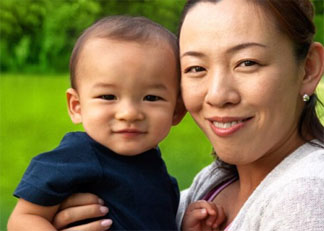Which are the Best Fertility Drugs to Conceive a Baby?
Category : blog
The following are the fertility drugs which are the best treatment for the women who are infertile due to ovulation disorder and these are:
a) Clomid: Clomid is a fertility drug which is taken by mouth and stimulates ovulation by causing the pituitary gland to release more FSH (Follicle-stimulating hormone) and LH (Luteinizing hormone) so that it will stimulate the growth of an ovarian follicle that is containing an egg.
b) Metformin: Metformin is a fertility drug which is given to women when insulin resistance is a known or suspected cause of infertility. Usually, the fertility experts at Fertility Center Nepal recommend Metformin to the women who diagnosed with PCOS. Metformin is a fertility drug which helps in improving insulin resistance and also it will help in improving the likelihood of ovulation.
c) Gonadotropins: Gonadotropins is an injectable fertility drug which is given to the women so that it will directly stimulate women ovaries to produce multiple eggs, instead of stimulating the pituitary gland to release more hormones. Gonadotropin is a medication which includes human menopausal gonadotropin (hMG) and FSH. There are other gonadotropins, human chorionic gonadotropin which is Ovidrel and Pregnyl is used to mature the eggs and trigger their release at the time of ovulation. This is a medication which has a higher risk of conceiving multiples and a premature delivery.
d) Bromocriptine: Bromocriptine is a dopamine agonist which the fertility expert will give to the women when she has ovulation problems which have been caused by excess production of prolactin by the pituitary gland.
e) Letrozole: Letrozole is a fertility drug which is also known as aromatase inhibitors and it works similarly as Clomid. This medication may induce ovulation. However, the effect of this medication can be seen in early pregnancy which is not yet known, so the fertility experts use this medication for ovulation induction as frequently as others.
What are the risks associated with fertility drugs?
The following are some risk factors which are associated with the fertility medications and these are:
a) Multiple pregnancies: Medication which is taken orally has less risk of multiples which is less than 10% and mostly a risk of twins, however, your chances increase up to 30% when your fertility expert will give you injectable medications. Injectable medications increase the major risk of triplets or more multiple pregnancies.
According to the study, if you are carrying more fetuses then you are at the greater risk of premature labor, low birth weight, the problem with child development on later stages, etc. There are chances that adjusting medications can lower the risk of multiples if there are too many follicles develop.
b) Ovarian hyperstimulation syndrome: Injecting fertility drugs which the fertility experts at Fertility Center Nepal give to women can induce ovulation and it may cause OHSS, which causes painful and swollen ovaries. Usually, the signs and symptoms of OHSS go away without treatment, and it includes mild abdominal pain, vomiting, nausea, bloating, and diarrhea.
If you become pregnant, the symptoms of OHSS might last several weeks. There can be rare chances that it will develop a more severe form of OHSS which can cause rapid weight gain, enlarged painful ovaries, shortness of breath, and fluid in the women abdomen.
c) Risks of ovarian tumors: According to the study, the women who are taking fertility drugs for 12 or more months and they are unable to conceive a successful pregnancy they may be at increased risk of borderline ovarian tumors which can occur later in life.
It has been found that the women who never have pregnancies can also be at a higher risk of ovarian tumors, so this may be related to the underlying problem rather than the treatment. You will find the highest success rates in the first few treatment cycles and the use of re-evaluating medication will last for a few months. You will be able to concentrate on the treatments which will give you the highest success rates.
How female infertility can be diagnosed?
The fertility experts at Fertility Center Nepal recommend some tests to diagnose infertility in females and these are:
a) Ovulation testing: Your fertility expert will give you the over-the-counter ovulation prediction kit through which you can detect the surge in luteinizing hormone (LH) at your home which occurs before ovulation. Also, a blood test is suggested for progesterone which is a hormone produced after ovulation which gives the clear picture that you are ovulating. Other hormone levels, such as prolactin, also may be checked.
b) Ovarian reserve testing: This is a test which helps to identify the quality and quantity of eggs available for ovulation in women ovaries.
c) Another hormone testing: Your fertility expert will recommend another hormone testing which helps in checking the levels of ovulatory hormones, thyroid and pituitary hormones which control reproductive processes.
d) Hysterosalpingography: X-ray contrast is injected into your uterus during hysterosalpingography and your fertility expert will take this X-ray to detect if there are any abnormalities in your uterine cavity. This test helps in identifying whether the fluid passes out from your uterus and spills out of your fallopian tubes. If any abnormalities are found your fertility expert will suggest you for further evaluation.
e) Imaging tests: Your fertility expert will conduct a pelvic ultrasound through which they will able to look for uterine or fallopian tube disease. Sometimes they use a hysterosonography to see details inside your uterus which cannot be seen by a regular ultrasound.
There are some other tests which will be conducted on your situation and these are:
a) Laparoscopy: This is a minimally invasive surgery in which your fertility expert will make a small incision in your navel and they will insert a thin device through which they will examine your fallopian tubes, ovaries, and uterus. A laparoscopy is a test through which your fertility expert can also identify endometriosis, blockages, scarring, or irregularities of the fallopian tubes, and problems with your uterus and ovaries.
b) Genetic testing: Genetic test will be conducted to determine if there is any genetic defect which causes infertility.














